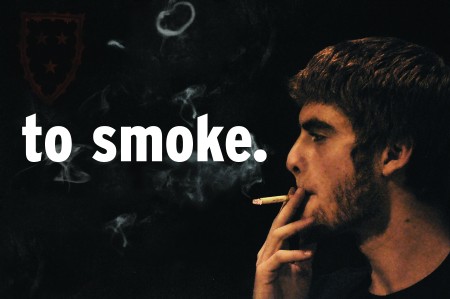
On Nov. 19, 2009, the University of Kentucky chose to become a smoke-free campus, and just one year later the University of Louisville followed suit.
Though discussions are preliminary, the possibility remains for Murray State to be next in line for a smoke-free campus.
Judy Lyle, interim associate director of Health Services, said the topic has been on and off the table for a few years now, but said little to no headway had been made in order to enact any smoke-free policies for the University.
“We have done some informal surveys and even had a small grant at one point to help with policy development,” Lyle said. “Dr. Ellen Hahn visited our campus two years ago to discuss how University of Kentucky moved to their tobacco-free campus.”
A long-time advocate of non-smoking and co-chair of the UK Tobacco-Free Campus Initiative Task Force in 2009, Hahn shared with Lyle and other Murray State faculty the struggles and procedures involving the transformation of campus policy.
“A policy change such as the one at UK is not something that happens overnight,” Lyle said. “It took a couple of years with much planning and involvement by many stakeholders.”
Conducted in the spring of 2012, the last National College Health Assessment for Murray State indicated 65 percent of the campus had never used cigarettes, and 82 percent had not used cigarettes within 30 days of the survey. The analysis included 638 randomly selected students, roughly 6 percent of the total campus population.
While the University continues to allow smokers the general freedom to smoke in most outdoor locations, Lyle believes there are students and faculty who want a tobacco-free campus.
“I certainly get comments and complaints from people who come into contact with undesired second-hand smoke and from those who are offended by the butt trash generated by those who smoke,” she said. “There is surprise, more like shock, from those who come from smoke-free communities to our community which is not smoke-free.”
Keely Netz Doctorman, a Murray State alumna working for the Breathitt Veterinary Center in Hopkinsville, Ky., said one of the most difficult parts of enforcing a smoke- free policy resides not in the overall health of people, but in asking people to forgo their personal rights for the safety of others.
“We have not yet worked out how to allow a smoker to fulfill their personal desire to smoke without inflicting second- and third-hand smoke on others,” Doctorman said. “An individual’s personal rights only exist so far as they don’t infringe on the individual rights of another person.”
It appears that many students on campus, however, do not mind mingling with smokers. From randomly selected students on campus on two separate days, not a single student voiced major concerns with Murray’s current smoking status.
“I think people have a right to smoke if they want to,” said Ryan Thornton, senior from Benton, Ky.
Robbie Parsons, a freshman smoker from Mayfield, Ky., said smoking represents the freedom he enjoys being away from home.
“College was a place for me to get my freedom,” he said. “If smoking were banned, it would hurt a lot of people like me. It would take away our freedom.”
Unlike neighboring Paducah, Murray is not smoke-free, and in fact has had its fair share of trouble enforcing no smoking policies throughout the city.
In 2011, the Murray-Calloway County Hospital discussed the possibility of reverting back to designated smoking areas following a 2009 ban on smoking inside or near the facility.
Discussion has since fizzled, however, and the hospital campus remains smoke-free.
Already some restaurants in Murray, including Sirloin Stockade and the recently closed Ryan’s Family Restaurant had resorted to smokeless environments, tossing away their ashtrays and converting their smoking sections into large party rooms for extra seating.
Not all restaurants have removed their smoking sections, though, as Applebee’s, Mary’s Kitchen and all city liquor establishments maintain smoking policies and have designated sections for smokers and non-smokers to enjoy their meals and drinks.
Often blamed for the rising cost in health care, smoking and other tobacco products have been medically linked to multiple types of cancer and birthing abnormalities, launching a national debate as to the legality of second-hand smoke.
Director of Human Resources Tom Hoffacker said he would like to learn more about faculty and student concerns regarding smoking and current campus policies regarding tobacco use.
Said Hoffacker: “Smoking, along with obesity, is a significant problem that results in high costs for health care. I don’t think anyone is eager to have either of those problems continue.”
Story by Edward Marlowe, Staff writer.